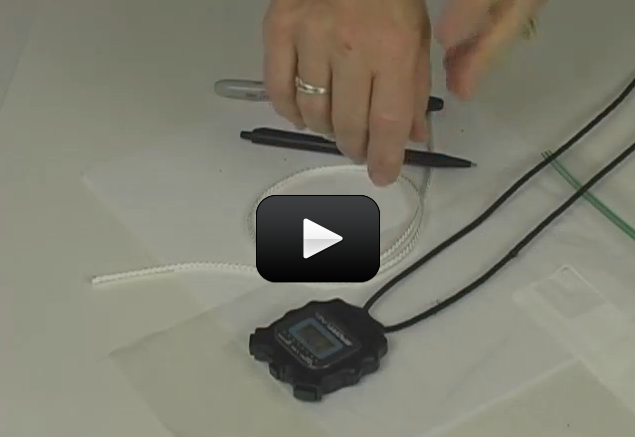Skin has another function that it vital to your survival: temperature regulation. Being exposed to high temperatures causes your skin’s pores to open up and release sweat onto your body. This helps cool us off by the resulting process of evaporation.
Your pores will close in extremely cold temperatures. Also, the body stops blood flowing to the skin in order to conserve heat for the important vital organs and their processes.
In this lab, we study the moisture that your skin produces – even when you are not aware of it!
[am4show have=’p8;p9;p11;p38;p92;p29;p56;p81;p87;’ guest_error=’Guest error message’ user_error=’User error message’ ]
Here’s what you need
- 1 gallon baggie
- 1 string, 12 inches long
- 1 assistant
- 1 clock
Download Student Worksheet & Exercises
Here’s what you do
- Record a description of how moist your hand is prior to putting it in the baggie. This is at 0 minutes.
- Put your hand in the baggie and ask your assistant to tie it closed around your wrist. No air should be able to get in or out of the baggie. Record the time for tracking purposes.
- Check your hand every 10 minutes for a half hour. With each observation note the amount of moisture that has accumulated. Record your observations at 10 minutes, 20 minutes, and 30 minutes.
- What do you think will happen if you go outside and run around with your hand inside the bag? Try it and see if it accelerates the process.
What’s going on?
Sweat glands are always producing moisture on our skin. Most of the time, we don’t really notice this process. By enclosing your hand in plastic, this moisture can’t evaporate as it normally would. The bag collects and condenses it.
It is interesting to note that your body can produce up to a gallon of water in extremely hot temperatures – 110 degrees Fahrenheit and higher. This is one of the reasons it’s so important to stay hydrated in extreme heat!
Exercises
- How is sweat released from the body through the skin?
- How does sweat help to cool the body?
- What did you observe at the 30 minute mark in your experiment?
- What is evaporation and how is it different from condensation?
[/am4show]

